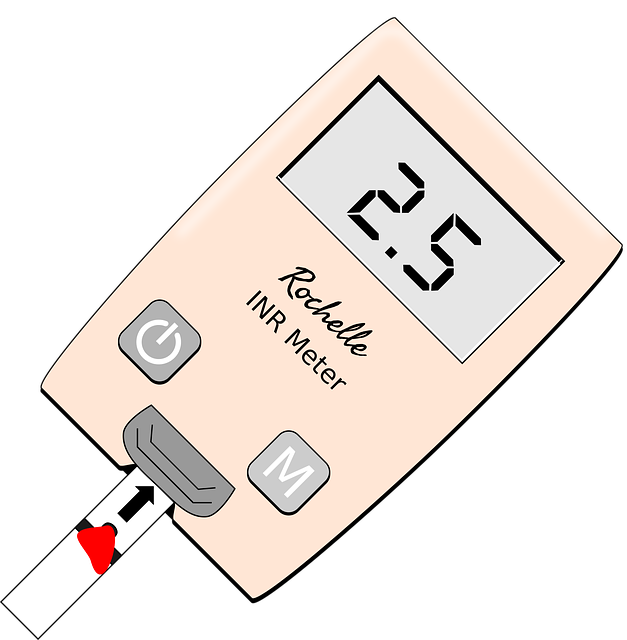Testosterone is a key hormone affecting various aspects of male health, including physical attributes, sexual function, energy levels, and cognitive performance. While the UK's Standard Thyroid Blood Test (TBT) doesn't directly test testosterone, it can hint at underlying hormonal imbalances like hypogonadism (low testosterone). Men experiencing persistent health issues should consult healthcare professionals who can recommend specialized blood tests to measure testosterone concentrations, enabling early detection and treatment of potential hormone-related problems.
Testosterone plays a pivotal role in male health, influencing energy levels, muscle mass, bone density, and sexual function. When levels dip below normal, various health issues can arise, ranging from fatigue and depression to osteoporosis and erectile dysfunction. This article delves into the importance of testosterone level testing for UK men, highlighting common indicators prompting such tests, as well as the procedures, interpretations, and next steps associated with the standard Thyroid Blood Test UK.
- Understanding Testosterone: The Hormone and Its Role in Male Health
- When to Consider Testosterone Level Testing: Common Male Health Issues
- Standard Thyroid Blood Test UK: Procedures, Interpretations, and Next Steps
Understanding Testosterone: The Hormone and Its Role in Male Health
Testosterone is a key hormone that plays a pivotal role in male health and well-being. Often referred to as the ‘male sex hormone’, it is naturally produced by the testicles, with small amounts also synthesized in the adrenal glands and ovaries. This powerful hormone is responsible for various physical traits and functions specific to men, including muscle mass and strength, bone density, fat distribution, and sexual function. It also contributes to overall energy levels, mood, and cognitive performance.
In the UK, a standard Thyroid Blood Test (TBT) often includes measurements of testosterone levels as part of a comprehensive assessment for male health issues. This is because low testosterone, or hypogonadism, can manifest in various symptoms such as fatigue, decreased muscle mass, low libido, and changes in mood. By understanding the role of this hormone and its potential impact on overall health, men can take proactive measures to manage their testosterone levels and address any underlying issues, ensuring optimal well-being.
When to Consider Testosterone Level Testing: Common Male Health Issues
If you’re a man experiencing persistent health issues, it might be worth considering testosterone level testing. While often associated with muscle mass and sexual function, testosterone plays a vital role in overall male health, influencing energy levels, bone density, and even mood. A drop in testosterone levels, known as hypogonadism, can lead to a range of symptoms such as fatigue, decreased libido, muscle weakness, and changes in body composition.
In the UK, a standard Thyroid Blood Test is commonly used to assess thyroid function, but it doesn’t directly measure testosterone levels. If you suspect hormonal imbalances or have concerns about your overall well-being, consult with a healthcare professional who can advise on appropriate testing, including specialized blood tests to check testosterone concentrations. This proactive step can help identify and address potential health issues early on, ensuring a healthier future.
Standard Thyroid Blood Test UK: Procedures, Interpretations, and Next Steps
The Standard Thyroid Blood Test UK is a crucial diagnostic tool for evaluating thyroid function and identifying potential health issues. This test measures the levels of thyroxine (T4), triiodothyronine (T3), and thyroid-stimulating hormone (TSH) in the blood. The procedure involves taking a small sample of blood, usually from a vein in the arm, which is then analysed in a laboratory.
Interpretations of these results are key to determining thyroid health. Normal ranges for TSH typically lie between 0.4 and 4.0 mU/L (milliuunits per litre). Elevated TSH may indicate hypothyroidism, while low TSH can suggest hyperthyroidism. T4 and T3 levels also play a role; T4 is the storage form of thyroid hormone, and T3 is the active form. Imbalances in these hormones can lead to various symptoms, such as fatigue, weight changes, or cardiac issues, highlighting the importance of accurate testing and subsequent medical advice for any deviations from the standard ranges.
Testosterone level testing is a valuable tool for assessing male health issues, especially when coupled with a standard thyroid blood test UK. Understanding when to consider such testing, as well as the procedures and interpretations involved, can empower men to take proactive steps towards managing their overall wellbeing. By addressing hormone imbalances and underlying thyroid conditions, individuals can experience significant improvements in their quality of life.
